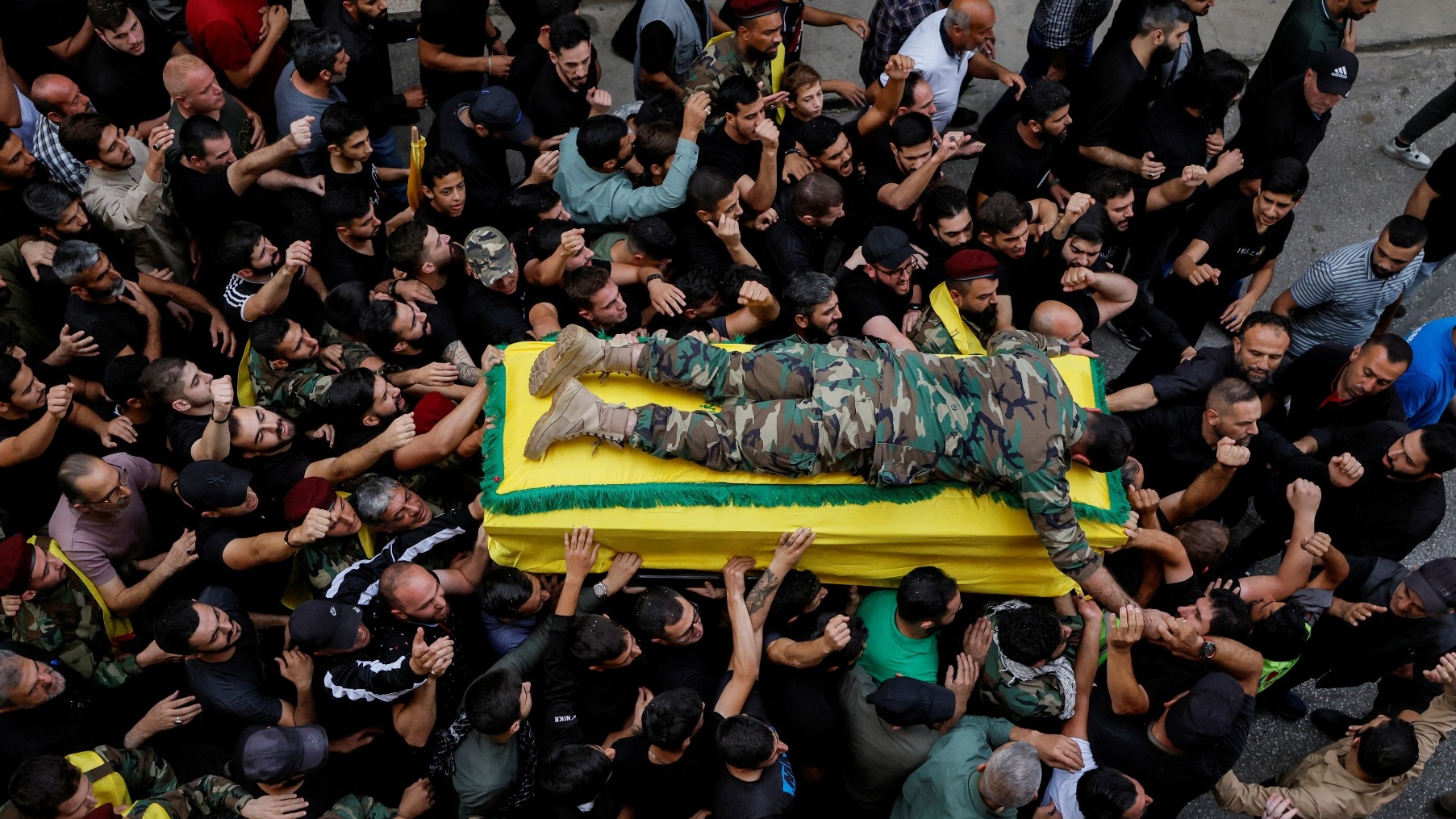Iranian press review: Iran and Hezbollah don't want to destroy Israel, says ex-diplomat

Former diplomat's statements on Israel raise eyebrows
Mohammad Ali Mohtadi, a former hardline diplomat, said, "Neither Iran nor Hezbollah has ever had a strategy to annihilate Israel," as reported by the HamMihan daily on Sunday.
Mohtadi, who led Iran's state-run news agency's Middle East bureau in Beirut during the Lebanese civil war and later served as a diplomatic attaché in Iran's embassy in Beirut during the 1990s, diverged sharply from the post-1979 revolution statements of Iranian supreme leaders, which called for Israel's destruction.
Mohtadi added, "We assert that if Hezbollah engages in a conflict, Israel may face destruction, but it is not our intention to demolish Israel. Iran's support to Hezbollah is aimed at aiding their self-defence."
However, Mohtadi also echoed Iranian officials in suggesting that if Israel continues its actions in Gaza, new conflict zones could emerge in Iraq, Lebanon and Yemen.
Stay informed with MEE's newsletters
Sign up to get the latest alerts, insights and analysis, starting with Turkey Unpacked
In response, Ahmad Zeidabadi, a prominent Iranian analyst and former political prisoner, accused Mohtadi of grandstanding. Zeidabadi argued, "If Mr Mohtadi's claims regarding potential threats to Israel are valid, Iran's reluctance to participate would be a betrayal of the Palestinian cause."
He stressed the need for diplomatic means to address potential escalations, as a regional expansion of conflict could prove dangerous for Iran and bolster Israel's position.
Follow Middle East Eye's live coverage for the latest on the Israel-Palestine war
He added, "Following Gaza, the focus could shift to Hezbollah and Iran; however, I believe exerting pressure on these entities should be handled diplomatically. Nonetheless, such pressure would likely surpass any previous pressure on Iran."
Since the Gaza conflict began, Iranian analysts and the public have remained divided over Tehran's role in the war, and its future involvement.
Iran 'avoided three wars' during Trump era
Hassan Rouhani, the former Iranian president, has disclosed that Iran and the US were on the brink of war on three separate occasions during the Trump administration, narrowly avoiding conflict through restraint and tension management, according to reports from local media on Tuesday.
While addressing a gathering of reformist and moderate figures, Rouhani issued a strong warning about the looming threat of war against Iran, particularly in light of Israel's intensified attacks and ground incursion in Gaza.
'The prospect of war now hangs more ominously over the region than ever before'
– Hassan Rouhani, former president
He emphasised, "The prospect of war now hangs more ominously over the region than ever before. The upcoming days, weeks and months hold great significance for Iran and the entire region. We must maintain a state of vigilance to completely avert the shadow of war from our nation."
Rouhani recounted how, during his presidency, Iran and the US teetered on the brink of full-scale conflict, following the downing of a US Global Hawk drone in June 2019 and the attack on Saudi Arabia's state-owned oil company in March 2022.
He also highlighted a third potential flashpoint in the form of an all-out war between the two nations, triggered by Iran's ballistic missile strike on a US military base in January 2020 as a response to the assassination of the top Revolutionary Guard commander, Qassem Soleimani.
In light of these past events, Rouhani alleged that Israel's aim is “to annihilate Hamas and the Islamic Jihad movement while involving Lebanon's Hezbollah and Iran in the war.
"Netanyahu is striving to broaden the conflict in the region. Because, once the war ends, he may find himself awaiting trial in Israel's court of public opinion. Netanyahu has openly stated that the war allows us to reshape the entire regional landscape," he concluded.
Reformists warn over low turnout in next election
As Iran gears up for its 12th parliamentary elections in March 2024, reformist voices in the country have expressed doubt that the historic surge in candidates - with a record 24,829 registering for 270 seats - would lead to a more competitive election and higher voter turnout.
This scepticism lies in the vetting system enforced by the powerful Guardian Council, which reformists and domestic opposition groups argue tilts the playing field in favour of conservative and hardliner candidates.
On Tuesday, Saeed Shariati, a prominent reformist politician, criticised the lack of inclusivity in the electoral process, saying, "We had hopes that the Guardian Council would make the vetting system easier to increase voter turnout, but now we see that nothing has changed [compared with the previous elections]."
Shariati's comments reflect the concerns of many reformists that the election may not be as competitive as the number of candidates suggests.
According to Shariati, reformist figures are notably absent from the list of candidates, with many opting not to register because they would be rejected during the vetting process.
"Also, reformist figures with less experience in the political scene were quite sure the council would reject them due to their careers. The upcoming election will feature a one-sided contest among right-wing political groups," the Arman daily quoted Shariati as saying on Tuesday.
The Guardian Council, which plays a vital role in Iran's electoral system, consists of six Islamic clerics directly appointed by the supreme leader and six jurists chosen by the country's chief of justice, himself an appointee of the supreme leader.
* Iranian press review is a digest of news reports not independently verified by Middle East Eye
Middle East Eye delivers independent and unrivalled coverage and analysis of the Middle East, North Africa and beyond. To learn more about republishing this content and the associated fees, please fill out this form. More about MEE can be found here.





